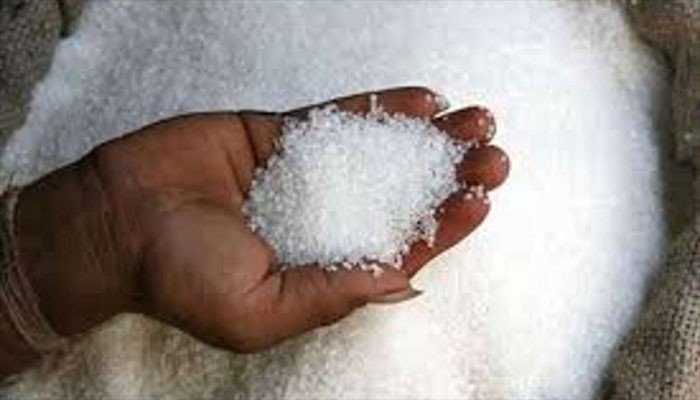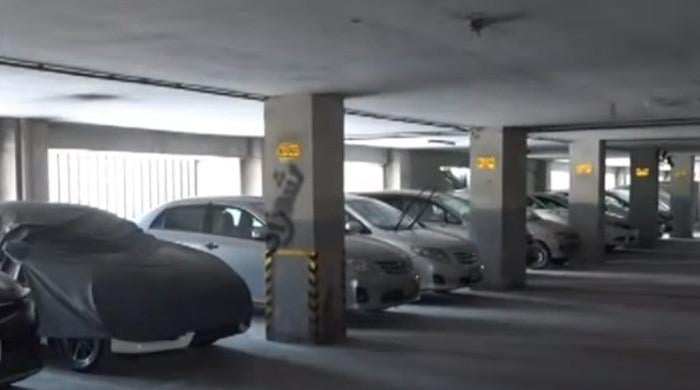Sugar scam: How did Utility Stores Corporation buy sugar on a huge scale?
In March, premier Imran Khan also announced Rs50 billion for the USC this year
June 10, 2020

ISLAMABAD: The Utility Stores Corporation (USC) purchased around 0.3 million metric tonnes (MMT) of sugar directly from mills since the federal government ordered an investigation into the sugar scam, witnessing a record hike in demand for ‘buying sugar’ on high prices during the last five years.
The USC floated 18 tenders in past 17 months, seeking procurement of collectively 0.848-metric-ton refined sugar from Dec 2018 to April 2020, official record showed. Some 17 tenders of 0.380-MMT-ton sugar were floated by the USC in previous regime from June 2016 to June 2018.
The federal government gave Rs21 billion to the USC for procurement of five necessary items namely sugar, flour, oil, pulses and rice in the past seven months.
In March, premier Imran Khan also announced Rs50 billion for the USC this year, thus the corporation collectively got Rs71 billion, a record package in its history.
Geo News' weeks long investigation/research on sugar procurement, tenders policy, subsidy, demand and supply, sale and other matters related to hike in sugar price suggested that the federal government was paying estimated Rs10 million sugar per day as subsidy to sell sugar at Rs68 per kilogram to around 4,000 plus utility stores in the country.
Background interviews with senior officials further revealed that the federal government paid Rs1.4 billion approximately only on sugar as subsidy by selling sugar on cheaper prices to the common public since January this year.
Officials familiar with the latest developments told this correspondent that the USC purchased 60,000 metric ton (MT) branded sugar from M/s Chashma Sugar Mills at Rs83 per kilogram and 30,000 MT from the same unit at Rs83.5 per kilogram in March this year.
The USC purchased 20,000 MT sugar from M/s Al-Moiz Industries Units at Rs79.50 per kilogram in March this year. The corporation purchased 78,000 MT at the cost of Rs78.328 from M/s The Thal Industries and M/s Al-Moiz sugar plants in April this year.
M/s Dherki Sugar Mills sold 20,000 MT sugar for Rs67 to the USC in April this year.
Officials said Faran Sugar Mills sold 5,000 MT sugar for Rs78.32 per kilogram and Farid Sugar Mills 3,000 MT sugar to the USC for Rs78.32 per kilogram in April this year.
The government made payments to these millers who sold sugar to the USC in advance, officials said.
The regulators, through the Inquiry Commission on Sugar also got hands on these files to further probe these procurements, apparently made in haste, officials said.
The research showed that the record procurements were made at higher than the ex-mill price, which was around Rs71 to Rs74 per kilogram.
Thus the USC had been paying Rs12 to Rs15.50 extra per kilogram to sell sugar for Rs68 since January 8, 2020, official documents revealed.
Officials also said that the USC missed its 30% set target of total Rs30 billion sales under Ramazan target this year.
The USC moved a summary to PM Imran Khan in February 2020, seeking exemption from Pepra rules (without tender) to purchase 100,000 MT, informed officials said.
Through this summary, the USC was to purchase 20,000 MT sugar from JDW Group at Rs67 per kilogram and rest of 80,000 MT sugar at Rs79.50 per kilogram from other mills.
But the PM rejected the summary and the USC purchased 20,000 MT from JWD for Rs67 per kilogram in April 2020 while it purchased 78,000 MT sugar for Rs79.50 per kilogram in the same month from six sugar mills.
When the USC was asked why it floated maximum tenders to create uncertainty in the market, which put sugar price on fire, the administration in its official response to this correspondent said, "During the last regime, the government did not provided the USC any subsidy and the supply from the corporation was very low.
“Due to the fact, the USC witnessed low sales in the previous tenure as compared to the current situation. The USC, under the directives of Prime Minister Imran Khan, aims to provide relief to end-users by providing products at a subsidised price range.”
In response to a query either the USC purchased/floated tenders of around 360k tons sugar in Feb, March and April only this year, the USC said, "In the month of March 2020, the USC purchased 20,000 metric tons at a price of Rs79.50 per kilogram, while it purchased 20,000 metric tons at a price of Rs67 per kilogram and 78,000 MT at a price of Rs78.32 per kilogram."
The USC floated tenders for purchase of 75,000 MT white refined sugar on Feb 18, 2020 but purchased 20,000 MT sugar at a price of Rs79.50 per kilogram. The USC floated tenders for purchase of 50,000 MT white refined sugar on March 12, 2020 but it purchased 20,000 MT at a price of Rs67 per kilogram.
"We purchased this sugar from M/s Dherki Sugar Mills and JDW (Unit-I, II & III). On the special request of the Government of Pakistan, the sugar was purchased at special discounted prices," the USC administration confirmed to this correspondent.
The USC issued tenders for purchase of 110,000 MT white refined sugar on March 17, 2020 but corporation purchased 78,000 metric tons of sugar at Rs78.32 per kilogram.
The USC floated tenders for purchase of 200,000 MT white refined sugar on April 7, 2020 but tender was not awarded and scrapped due to availability of enough stock.
The USC shared details of March 17, 2020 tender with participants names in which the corporation had purchased 20,000 MT sugar at Rs79,500 per ton while at that time one truck, 10 MT sugar, was delivered at Karachi Jodia Bazaar for Rs75500 per ton.
The M/s Al-Moiz Industries Unit I and II and M/s Thal Industries Corporation Plant I and I were the participants and at that time, special price index rate for sugar was Rs90 per kilogram.
Responding to a question that record high sugar sales revealed that the staff purportedly sold sugar to private retailers, who repacked 5kg bag easily in a 50kg bag, the USC said, "No, this is a false accusation. The USC ensures that all the sugar and necessary items are sold to the end-users."
Originally published in The News











